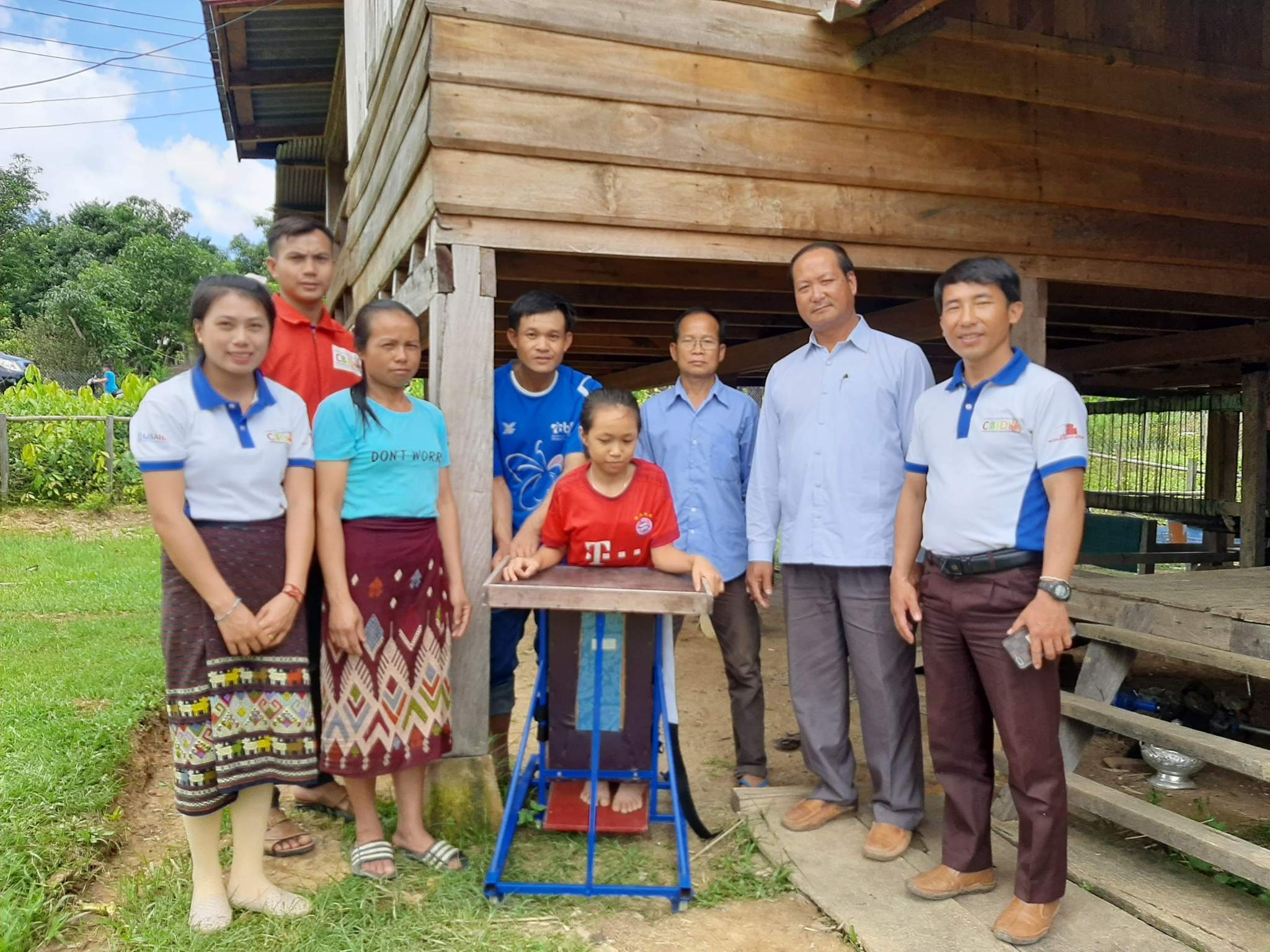
In honor of International Day of Persons with Disabilities on December 3, the International Republican Institute (IRI) is spotlighting the work of the Quality of Life Association (QLA), as they lead the charge in promoting the inclusion of persons with disabilities (PWD) in Laos. Facing a markedly high number of injuries due to unexploded ordnances, Laos has a large community of PWDs and the strength of its society depends on their inclusion.
Throughout its history, Laos has endured more bombing per capita than any other country in the world and, to this day, has the greatest number of unexploded ordnances (UXOs). Between 1964 and 1973, over 270 million cluster bombs were dropped in Laos, and over 75 million UXOs remain in danger of exploding. Today, the detonation of these devices is one of the leading causes of disability in Laos. Over the past 20 years, community-based awareness programs and device clearance efforts have reduced the number of UXO incidents. However, every year, hundreds of people in Laos are still killed or disabled by UXO explosions. Moreover, while statistics about PWDs in Laos are limited, studies find that an estimated 1.4 percent of the country’s overall population is disabled.
In response, the Government of Laos (GoL) has adopted several laws and policies aimed at protecting the rights of PWDs, including ratifying the Convention on the Rights of Persons with Disabilities (CRPD) in 2009 and enacting disability laws in 2014 and 2018 to ensure PWDs have the right to basic services and decent work. Although these are certainly important steps, much work is left to be done. Effective, sustained implementation of these polices is key to lifting PWDs in Laos out of poverty and must ensure equal access to education, healthcare, suitable housing and employment opportunities.
Leading Advocates
Established in 2012, QLA is the leading nonprofit association in Laos advocating for the inclusion of PWDs within their families and communities. To achieve this end, QLA uses a twin-track approach by simultaneously supporting PWDs and their families, as well as partnering with local authorities to support PWDs in their villages and broader communities.
In an interview with IRI, QLA Director Thoummy Silamphan emphasized that the most pressing issue affecting the participation of PWDs in Lao society is “discrimination against PWDs by their families, communities and services”—a systemic problem that QLA has taken steps to address by promoting acceptance and inclusion. Experiencing stigmatization from childhood, PWDs are often reluctant to seek higher education, demand better employment opportunities or even engage with their communities. For example, PWDs are often excluded from community-based income generating activities as they are considered limited in their ability to conduct physical labor. PWDs also face environmental barriers, such as a lack of ramps and elevators, which limit access to schools and healthcare facilities.
To support PWDs and their families, QLA provides inclusion and rights trainings that disseminate information about Lao disability laws and policies. At the community level, QLA partners with government representatives to establish People with Disability Inclusion Committees (PICs), bringing together district and village authorities, as well as education, agriculture and health officials to coordinate efforts that provide PWDs with access to medical services and vocational training, and in turn enhance their participation in society.
Tangible Solutions
To address the ongoing challenges facing PWDs in Laos, Silamphan highlighted the need for community-based inclusive development programs by nonprofit associations and international nongovernmental organizations (INGOs) in Laos. Community-based inclusive development can build the capacity of families and communities to help PWDs access services and assist them in developing skills, thereby promoting their full involvement in Lao society. Nonprofit associations and INGOs should also provide program participants with real-life examples of effective disability inclusion practices so that families and communities better understand the abilities of PWDs. Moreover, Silamphan emphasized that these programs should empower PWDs to advocate for their needs, as well as build their capacity to support other PWDs in their community. QLA’s work and IRI’s continued civil society capacity development efforts in Laos are important steps toward ensuring the rights of all Lao citizens are heard, recognized and represented.
Top